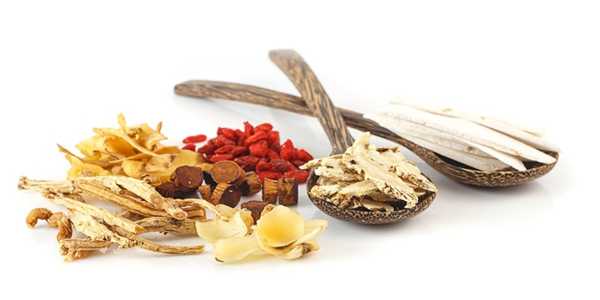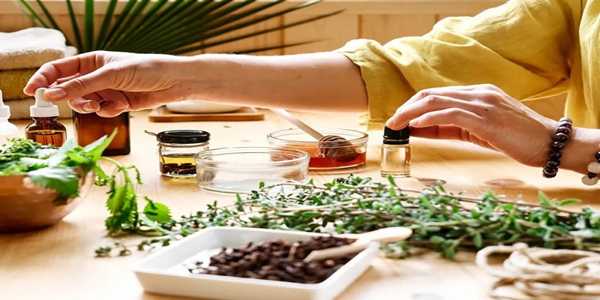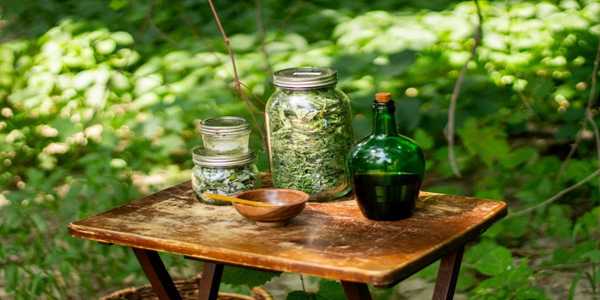
Herbal Medicine: A Modern Approach to Ancient Remedies
 Health & medical treatment
Health & medical treatment Herbal medicine has been a significant concern in treatment processes since time immemorial. Today, you can avail yourself of the efficiencies of those old curative actions with completely different scientific dimensions.
Herbal medicine has been a significant concern in treatment processes since time immemorial. Today, you can avail yourself of the efficiencies of those old curative actions with completely different scientific dimensions. Integrating traditional knowledge with state-of-the-art studies will enable you to identify how natural, plant-based treatments can be companions for maintaining good health. Herbal remedies vary from soothing teas to potent extracts but are mild and effective in relieving common complaints and boosting general well-being.
Unleashing the Potential of Herbal Remedies: The Rediscovery of Ancient Wisdom
For most, herbal medicine is a thing of the past; it now finds a place right at the heart of this modern resurgence in medicine. As interest increased toward natural remedies, this natural approach to health gained momentum. Today's herbalists combine that knowledge with modern scientific research for a strong synergy between old and new.
Science behind Plant Power
Recent research has only confirmed what the ancient traditional healers knew: plants are full of potent chemicals of immense consequence for human health. Phytochemical bioactive studies in herbs have created possibilities for treating several ailments. From using green tea as an antioxidant to turmeric's anti-inflammatory properties, these bioactives have bright prospects in the line of action against synthetic drugs.
Integration of Herbal Medicine into Modern Life
Herbal remedies play a massive role in everyday life, and their inclusion is incredibly effortless and accessible. Modern-day herbal supplements, teas, and tinctures find increased application today to complement mainstream medicine. Such an inclusion merely follows the general trend toward preventive health and wellness, in which herbs are at the forefront, nurturing overall good health and fighting particular health challenges.
Traditional and Scientific Basis for Herbal Medicine

Phytochemicals EXPLAINED
The efficacy of herbal medicine depends on the elaborate combination of phytochemicals present in plants. These phytochemicals, comprising flavonoids, alkaloids, and terpenes, among many others, generally interact with the human body in various ways. Recently, science has unravelled many aspects of such agents acting upon cellular pathways to offer potential therapeutic effects.
Pharmacological Actions
Contemporary research has described the mechanism of action for many herbs. Many plants have documented altering neurotransmitter levels, hormone levels, or even the activities of the immune system. The ever-expanding wealth of this type of evidence explains the empirical use of many herbal medications and provides scientific legitimacy to modern use.
Clinical Trials and Evidence-Based Practice
This is supported by the growing number of clinical trials that include herbal medicine within established health care. It would search for effectiveness and safety in herbal treatments, from simple complaints to severe diseases. As better quality research emerges, health professionals will be better positioned to offer evidence-based advice on herbal interventions that can be used alongside conventional treatment.
Quality Control and Standardization
Better analysis methodologies led to better standardization of herbal preparations for efficacy and purity, since it is concerning that the active principles of natural products vary. Nowadays, through modern quality control practices such as chromatography and spectroscopy, among others, active principles, identification, and quantification can be done, making herbal medicines more dependable.
Best Herbal Remedies for Common Health Concerns

Through the ages, herbal remedies have been one of the quick ways to tackle almost all types of health problems. Now, people are going back to discover their strength. Let's look at the most liked herbs and their possible uses in significant health issues.
Echinacea: Immune Support
The Purple Coneflower is mainly known for its immunological advantages. Echinacea decreases the severity and duration of the common cold and influenza symptoms. Some reports have said that it strengthens white blood cells that fight infection.
Ginger for Digestive Health
Ginger is classically used for stomach aches or nausea because of its bioactive constituents, which reduce indigestion, bloating, and even motion sickness. Many find their remedy in a glass of ginger tea or supplements.
Valerian Root for Sleep and Anxiety
Valerian root can be used to treat individuals who have insomnia or anxiety symptoms. This is an herbal drug because of its calming effect. Some studies have indicated that this substance can be used to improve sleep and even reduce symptoms of anxiety.
Turmeric for Inflammation
Turmeric, with its active ingredient curcumin, is known to have anti-inflammatory action. Many take it to alleviate symptoms related to arthritis and other forms of joint pain. It could be taken as a food spice or in supplement form to reduce general body inflammation.
Adding Herbal Remedies to Your Life
It is gratifying to work to bring herbal remedies into your lifestyle that will support health. First, take some time to learn about more common herbs and their possible benefits. Research the credibility of these sources:
● Well-accepted, well-known herbalists.
● Scientific studies.
● Ancient texts of traditional medicine that hold worthy information.
Start Small and Consult Professionals
Start with well-respected, gentle herbs like camomile and peppermint. These versatile plants can be administered readily as teas and supplements. However, remember to consult your doctor or healthcare professional before beginning an herbal course of treatment, mainly if you are on medication or have sensitive conditions of any sort.
Growing an Herbal Garden
You can grow in some of them; this is both rewarding and practical. First, plant the ones that are easy to grow, such as basil, rosemary, or lavender. Besides the convenience of having fresh herbs on hand, tending them can be soothing in itself, too.
Various Forms
Herbs come in teas, tinctures, capsules, and essential oils. Experiment to find out what works for you. For example, you may enjoy a soothing cup of lemon balm tea before bed or a ginger supplement with your meals to help digest your food.
Choosing Quality Herbal Products

With herbal medicine, quality counts. Products are generally variable, and not all herbal products are created equal. Finding the proper ones makes quite a difference in effectiveness and safety.
Look for reputable brands
First, start with well-established herbal companies with good reputations. These companies most often invest in quality control measures and third-party testing to ensure a high-quality product. Look for certification by an independent organization such as the United States Pharmacopeia (USP) or NSF International.
Standardization
Standardized herbal extracts are assured to contain a certain amount of active constituents and consistent potency and effectiveness. When purchasing, at least ensure that the product is standardized and that the standardization is listed on the label. This gives an idea of what you are taking and allows for closer to accurate dosing.
Form and processing
Herbs come in teas, tinctures, capsules, and powders; most have positives, so choose what works best for your needs and preferences. Note the processing method of herbs. Cold-pressed or CO2-extracted products retain their active beneficial compounds better when not subjected to heat or chemical processing.
Read labels carefully.
Always read a product's label for important information like ingredients, dosage, and possible allergens. Watch out for products that boast impossible or utopian health promises but fail to provide basic information about what's inside. A suitable herbal product labels transparently and informatively.
Embracing Nature's Healing Power
The deeper you delve into herbal medicine, the more it bridges the gap between ancient wisdom and modern sciences. You are opening the doorway to traditional uses that have existed for hundreds of years, which you are now incorporating into your daily wellness regime, with research supporting most of them. You should consult a health professional, especially since you will incorporate herbal herbs into their conventional treatment methods. Given due diligence and proper mentorship, herbal medicine plays a role in shaping your well-being.
